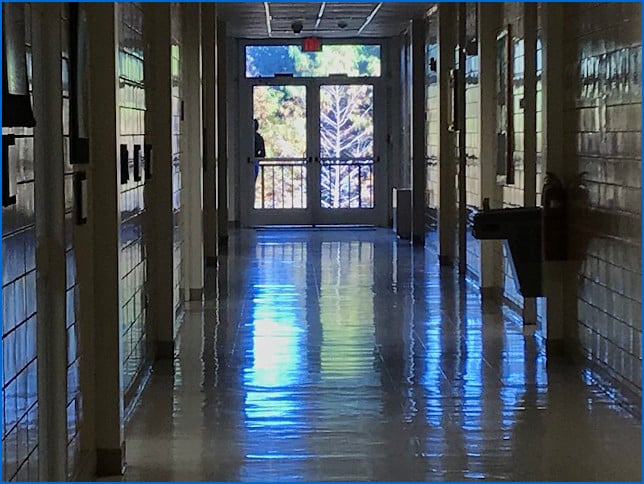
As we have seen, obesity has an intensifying effect. Any problem that children and teenagers ever run into is magnified by also being uncomfortably or dangerously overweight. It’s as if fat cells and COVID-19 have entered into some unholy alliance for mutual aid. Whether the virus succeeds in making everybody stay home, or whether in-person school is attempted, either way, the downsides will hit the obese young people worse.
Sarah Jones wrote for New York magazine:
Kids need real classrooms, trained teachers, and socialization they don’t get at home; the absence of each will harm low-income students the most… But low-income families face daunting obstacles. The pandemic deepens their disadvantages, and eats up whatever equity public schools achieve for their children.
Teachers are afraid these children will fall farther and farther behind.
And, what a coincidence. Disadvantaged, low-income students also have more of a tendency to develop obesity, and so do minority children, and there is often a lot of overlap among these groups.
Caution: Jones’ article about the consequences of various school-related choices could keep a person awake at night.
What is needed?
Kids need trained teachers, sure, and they also need empathetic teachers. A really good teacher figures out how to encourage children for their individual strengths and interests. This is so, so hard to do over a communal video feed, for more than one reason.
Socialization involves more than just learning how to say “please” and “thank you.” For a kid who is different in a non-approved way, like being too heavy, we’re talking about the development of skills. Some kids figure out how to deflect negativity with humor. Some learn how to play a musical instrument, or fix people’s computers, to earn forgiveness for being fat.
Author Shayla R. Griffin, Ph.D., discusses Dr. Fauci’s recommendations to make schools safe:
Low Covid-19 rates in the community;
Regular testing of all school personnel and students;
Robust contact tracing;
Mandatory mask usage of all students, starting from the moment they board the school bus; and
PPE for all educators, including masks, goggles or face shields, gloves, and “coverall” clothing that is easy to take off once the school day is over.
Not to be negative, but trying to convince a class of young children to wear their masks properly all day seems like a fool’s errand. That challenge alone will defeat many teachers. Where will the masks come from? Somebody needs to pay for them, and it probably will not be the families, not when many families can’t even afford to feed their kids breakfast. When even doctors, nurses, and other health-care personnel can’t get enough masks, how is this going to work out for school children?
And what about the teachers? Who will pay for their personal protective equipment, and for their hospital bills if they catch the virus? Fortunately, that question has been answered. Schools are having today’s equivalent of the old time school Bake Sale. Griffin says:
Many districts have already been doing public fundraisers for PPE donations, which raises concerns about whether or not we will actually have enough masks, goggles, gloves, and sanitizer for all students and staff.
But speaking of money, a stern reminder comes from Noah Rothman, who not only emphasizes that financially solid citizens are upset, but that America as a country seems to have given up on any notion that school opportunities should be equal:
[T]he indefinite postponement of in-person education is an abrogation of the social contract. Those who sought out their districts and pay property taxes commensurate with the services they pursued are being told they are out of luck. And they’re not entitled to a refund.
Your responses and feedback are welcome!
Source: “America’s Teachers Face an Impossible Choice,” NYMag.com, 07/17/20
Source: “Schools Aren’t Opening. We Have to Pay Parents to Stay Home with Their Kids,” Medium.com, 07/29/20
Source: “The Coming Showdown over Schooling,” CommentaryMagazine.com, 07/13/20
Image by Alexander Ellisson/CC BY 2.0

 FAQs and Media Requests:
FAQs and Media Requests: 











